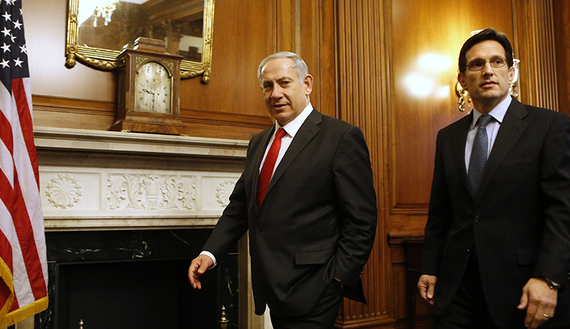The Ukrainian Crisis: The United States, Russia, and Israel
Sep 18 2014 / 3:33 am
By Stephen J. Sniegoski.
The American involvement in the Ukrainian imbroglio has a number of causes, which include the significant role of the neoconservatives. In a series of articles, investigative journalist Robert Parry has made an insightful analysis of this neocon role, linking it to their opposition to Obama’s recent “foreign policy that relies heavily on cooperation with Russian President Vladimir Putin to tamp down confrontations in hot spots such as Iran and Syria cooperation.” [1] That approach toward Israel’s enemies has been staunchly opposed as too soft by Israel and the Israel lobby in the United States, of which the neocons are a leading hard-line element.
Parry’s analysis of the Ukraine crisis better accounts for the facts than the mainstream’s Hitlerian Putin thesis or the position of some critics that it reflects the overall policy of the U.S. government to weaken Russia and expand the American empire. Furthermore, a significant unmentioned aspect of the Ukrainian affair is the irony-rich role of Israel, America’s purported close ally, which has not been critical of Russia. In fact, Israel is actually improving its relationship with Russia and stands to benefit from the crisis.
Neocons had been using the democracy card against Putin’s Russia for some time, as they had previously done against the Soviet Union, because of Putin’s hostility to the Russian liberals, many of whom happened to be Jewish and pro-Israel, and also because of Russia’s support for Israel’s major enemies — Iran and Syria. But Parry holds that the issue of Ukraine became especially significant in recent months because of the success of the Obama-Putin relationship in averting “a U.S. military strike against Syria last summer and then brokering an interim nuclear agreement with Iran last fall that effectively took a U.S. bombing campaign against Iran off the table.” [2] The neocons feared that in contrast to their war agenda for the Middle East — intended to weaken Israel’s enemies — the Obama-Putin combination might be able to establish a peaceful solution to the major problems in the Middle East that would have a negative impact on what they and the Israeli Right perceive as Israel’s national interests.
With that Middle East backdrop, Parry writes that the “[n]eocons played key behind-the-scenes roles in instigating the Feb. 22 coup [in Ukraine] that overthrew a democratically elected president with the help of neo-Nazi militias; the neocons have since whipped Official Washington into a frenzy of bipartisan support for the coup regime; and they are pushing for a new Cold War if the people of Crimea vote to leave Ukraine and join Russia.” [3] With tensions rising between the West and Russia, “the neocons have succeeded in estranging U.S. President Barack Obama from Russian President Vladimir Putin and sabotaging the pair’s crucial cooperation on Iran and Syria.” [4]
It should be added that the events in the Ukraine, by distracting U.S. attention from the peace process, enable Israel to create more facts on the ground, free from any badgering from the Obama administration, thus making the creation of a viable Palestinian state more unlikely. [5]
While it appears that the neocons and their followers provoked the immediate crisis in Ukraine — as I will describe in more detail — they are hardly the only elite group promoting a hard line on Russia, in contrast to their dominant role in the war on Iraq. Hard-liners on Ukraine include NATOists, neoliberals, humanitarian liberals, former Cold Warriors, and American nationalists. For some conservatives and American nationalists (the groups overlap) there are lingering Cold War suspicions of Russia that can easily be inflamed along with the belief that the United States must remain the world’s unchallenged superpower and thus strike down all competitors. Those involved in NATO — directly, peripherally, or even vicariously — see the existence of a Russia threat as providing a justification for the reinvigoration of an organization that would otherwise be an anachronistic relic of the Cold War. And, of course, defense contractors involved in producing sophisticated, high-ticket weaponry need the threat of a powerful enemy in order to peddle their wares in an era of U.S. budget austerity.
For the remainder, go to:
http://www.thornwalker.com/ditch/snieg_ukraine.htm

